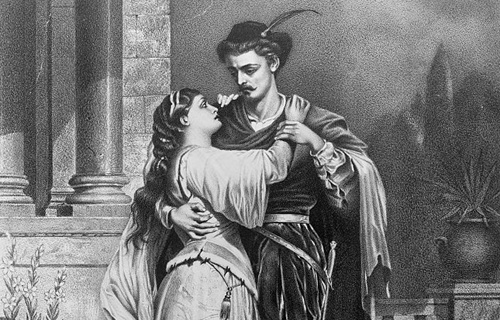
Romeo and Juliet Summary Act III
Act iii opens with Tybalt attempting to provoke Romeo into an altercation. Benvolio and Mercutio try to stop him. However when Mercutio tries to dissuade Tybalt, a duel ensues between them and Mercutio is grievously injured and dies. An enraged Romeo then slays Tybalt and flees Verona. The prince banishes Romeo and places a death warrant on his head. Juliet learns of Romeo’s exile and mourns her loss.
Meanwhile Friar Lawrence suggests that Romeo go and comfort Juliet who is living with the thought of not seeing Romeo again. Juliet’s famous speech is full of Grecian figurative terms as well as paradoxes such as ‘O serpent heart, hid with a flowering face!” (III ii 75) despite of hearing that Romeo has killed her cousin she likens him to “Beautiful tyrant! Fiend angelical!” (III ii 77) which is an oxymoron where despite of her anger vented on Romeo her love compels her to describe him as such where a tyrant can’t really be likened to an angel. It is a paradoxical comparison.
Romeo has spent the night with Juliet but the next morning Juliet learns she is to marry Paris on the following Thursday. She plans suicide if she is unsuccessful in convincing her father to cal of the marriage
In act ii shakepeare makes ample use of imagery where almost every scene is painted in vivid details of day and night. Take for example the lines
‘The day is hot, the Capels are abroad, and, if we meet, we shall not ‘scape a brawl, for now, these hot days, is the mad blood stirring’. (III, I, 2 4).
The bard uses an imagery of words to correlate the expressions of darkness, danger and a hot day. Darkness is used to describe the perception n of treachery, ignorance or deception and even death.
